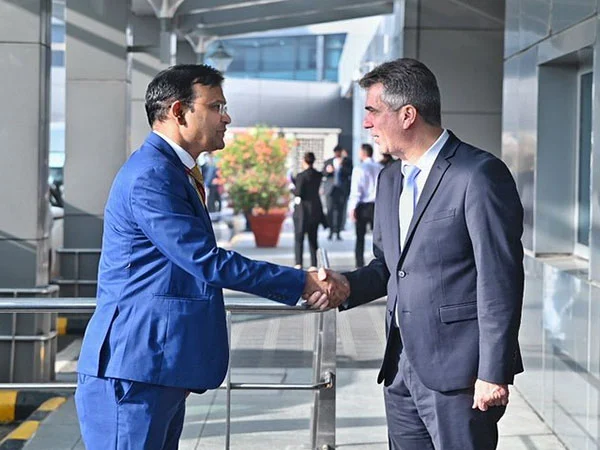It had been planned that Eli Cohen would remain in India until 11 May. On Tuesday, just before he boarded his flight to Israel, he had meetings with Prime Minister Narendra Modi, Defence Minister Rajnath Singh, and his counterpart S Jaishankar.

Eli Cohen, the foreign minister of Israel, was slated to spend three days in India, but his trip had to be cut short as he was forced to return unexpectedly to Israel just hours after his arrival in India on Tuesday. The rapidly changing security situation in his own nation was given as the basis for his decision to return to Tel Aviv by plane.
Cohen wrote in a tweet that “in light of the events in Israel, I decided to cut short the diplomatic visit to India and return to Israel after my meeting with Indian Prime Minister Narendra Modi that will take place today.” The meeting is scheduled to take place today.
It was planned that he would remain in India until the 11th of May. On Tuesday, just before he boarded his flight to Israel, he had meetings with Prime Minister Narendra Modi, Defence Minister Rajnath Singh, and his counterpart S Jaishankar.
What brought about the abrupt end to his visit?
After Israel carried out air strikes, the attacks resulted in the deaths of over ten Palestinians and injuries to over twenty others. There were three commanders of the terrorist organisation Islamic Jihad who were among those who were slain. Some people consider the others to be members of their family.
According to reports, it is one of the deadliest incidents that has taken place in the past year. Since May 2, the Israeli armed forces have switched their attention away from the West Bank and towards the Gaza Strip. There are around 2 million Palestinians living in the Gaza Strip, which has a very high population density. Egypt is its neighbour to the south, and they share a border.
Eli meets Rajnath, Jaishankar
The meeting between the two ministers took place in the nation’s capital, and during it, the defence minister emphasised the importance that the government places on indigenization in accordance with the “Aatmanirbhar Bharat Policy.”
Rajnath Singh thanked Israeli businesses for their assistance and urged those businesses to increase their investments in India and form joint ventures with Indian businesses in order to produce military hardware in India. He also acknowledged the assistance that the Israeli businesses had provided.
Eli Cohen expressed the willingness of Israel to cooperate and participate in the development of sophisticated technologies, as well as reiterating that Israel will continue to assist India in its drive towards indigenization.
In addition, he had a meeting with the Indian Minister of Foreign Affairs, S. Jaishankar, which was followed by the latter posting on Twitter about “productive and wide-ranging discussions with Foreign Minister @elicoh1 of Israel this afternoon.” Agriculture, water, and defence and security are the four primary pillars of our Strategic Partnership, and they are driving the expansion of our links. Today’s new agreements in the fields of water and agriculture highlight the possibility to accomplish more.
“Discussed cooperation in high tech, digital, and innovation, as well as connectivity, mobility tourism, financial markets, and health care.” We took note of the progress that has been made in I2U2 and in multilateral cooperation. He went on to say that they “exchanged perspectives on our respective regions, the Ukraine and the Indo-Pacific.”